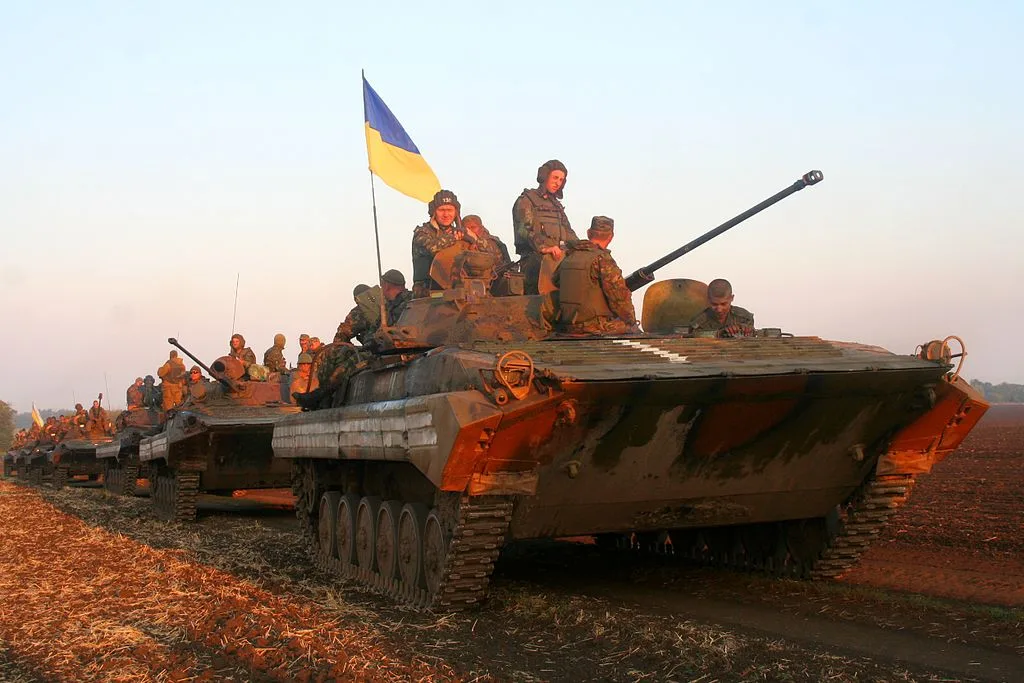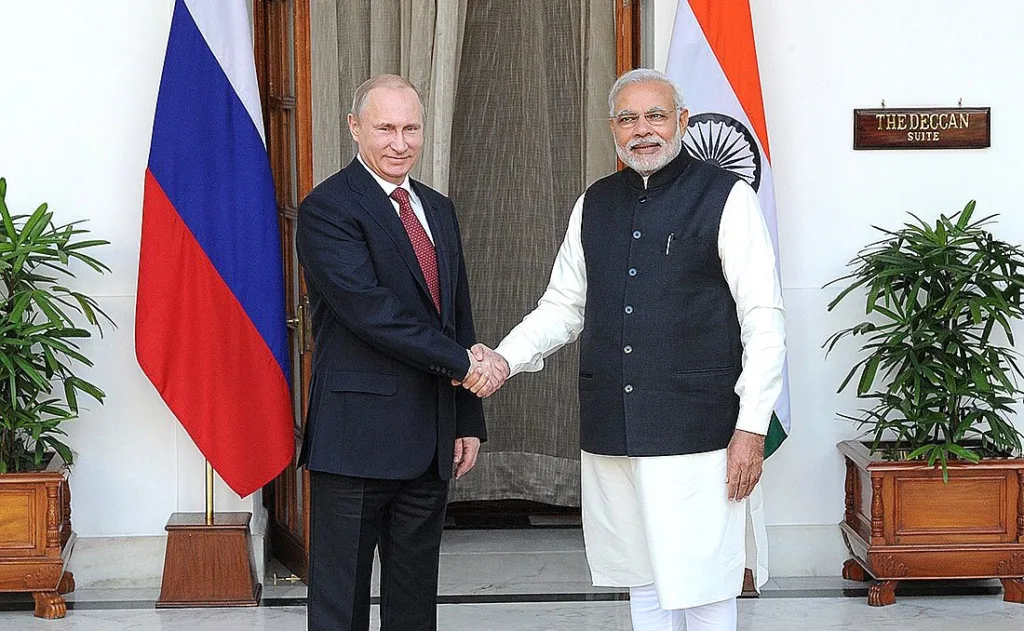Data showed the view of the Indonesian government was not very prominent in the news.
 The news on the Russian invasion of Ukraine received negative sentiments in Indonesian media. : Ministry of Defense of Ukrain CCBY2.0
The news on the Russian invasion of Ukraine received negative sentiments in Indonesian media. : Ministry of Defense of Ukrain CCBY2.0
Data showed the view of the Indonesian government was not very prominent in the news.
The two-year-old Russian invasion of Ukraine divided public opinion in many countries. Media coverage has naturally had a significant influence on people’s views, especially in countries far removed from the conflict.
The war has strained international ties, with a refugee emergency, diplomatic tension, energy supply uncertainty and global economic anxiety.
While many countries have loudly condemned the war, others have responded more cautiously.
In Indonesia, sentiment in the media towards Russia’s invasion has been overwhelmingly negative, reflecting widespread condemnation of the aggression.
An analysis of news reports relating to the war reveals important insights about the kind of information reaching the Indonesian public and the figures who have had the most prominent voice in the news.
In Indonesia, pro-Russia propaganda spread through social media, like YouTube and TikTok, as well as established news websites such as Tribun Timur and Tribun News.
According to the US Global Engagement Center, Russia has five pillars of propaganda: official government communications, state-funded global messaging, cultivation of proxy sources, weaponisation of social media, and cyber disinformation.
In Indonesia, the cultivation of proxy sources and weaponisation of social media have effectively influenced narratives of the war and the image of Russian president Vladimir Putin.
Russia and Ukraine both have a significant role in the Indonesian economy through trade in energy and food commodities.
An analysis of online news in Indonesia was warranted by the country’s ‘free and active’ foreign policy principles.
Information about the war in Ukraine in online media is essential for several reasons.
First, it provides the Indonesian government and public with current updates on the situation and fosters a better understanding of the conflict’s complexities, its humanitarian impact, and potential geopolitical consequences.
Additionally, online media serves as a crucial platform for sharing diverse perspectives and analyses.
In our analysis, we collected news from Factiva using two keywords in Bahasa Indonesia: “Russia invasion” (invasi Rusia) and “Russia attack” (serangan Rusia). From February 24, 2022, to January 31, 2024, there were 3,279 results, consisting of 2,094 online articles from publishers and 1,185 other web-based articles.
Most were published by Antara (Indonesia’s official news bureau), followed by Jawa Pos, Republika, and Tribun News. Three focused media – on economy, equity, and investment – were also at the top of the list: Bisnis Indonesia, IQPlus News, and Investor Daily.
We then sampled 600 articles to explore the main topics, sentiment towards Russia, types of sources in the news, and top opinion leaders.
The majority of articles covered the invasion itself (30.55 percent), followed by the impact of the war (10.34 percent), victims of conflict (8.34 percent) and other related topics.
From the 600 samples, we also found 294 news sources came from various backgrounds such as national leaders, academics and journalists with the most quoted sources from foreign governments and intergovernmental organisations (29.8 percent), followed by the Ukraine government (17 percent) and the Russian government (6.8 percent).
From this data, it’s clear the view of the Indonesian government was not very prominent in the news. The voice of the public and civil society organisations in the Ukraine war was also very small, only around 7.22 percent.
While foreign governments and intergovernmental organisations were the most quoted sources, the voices of the public and civil society organisations were relatively marginalised, highlighting a potential gap in representing diverse perspectives in media coverage.
The news on the Russian invasion of Ukraine received widespread negative sentiments (65.83 percent), followed by neutral sentiments (31.33 percent), and only 2.83 percent positive sentiments.
When we analysed the sentiments, we found at least two main narratives about the invasion.
The first one was about Putin’s ambition to restore the glory of the Soviet Union.
In this narrative, the Russian army and Putin were portrayed as easily taking down Ukraine and would soon target Baltic countries such as Estonia, Latvia and Lithuania.
The second narrative portrayed that Russia’s invasion was a lesson for the West’s intervention in the Soviet Union through NATO.
The top influencer was Ukraine President Volodymyr Zelenskyy (quoted in 58 articles), followed by US President Joe Biden (quoted in 21 articles), Putin (14 articles), and UN Secretary-General Antonio Guterres (11 articles).
The only Indonesian in the top 10 list of news influencers was a professor at Universitas Indonesia, Hikmahanto Juwana (7 articles). Indonesian President Joko Widodo only appeared three times in our sample, and the Indonesian Ministry of Foreign Affairs appeared twice.
So it would seem that the Indonesian government machinery has got its work cut out for it in its efforts to place the Indonesian government and Indonesian leaders more prominently in the global press.
Ika Idris & Prasetia Pratama are researchers at Monash Data & Democracy Research Hub. Nala Edwin is a lecturer at LSPR Communication & Business Institute, Jakarta.
This analysis is a collaboration with the Centre for Information Resilience, a non-profit dedicated to researching and tackling disinformation, investigating war crimes and human rights abuses using open source data.
Originally published under Creative Commons by 360info™.











